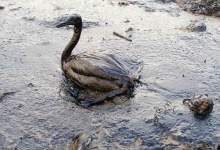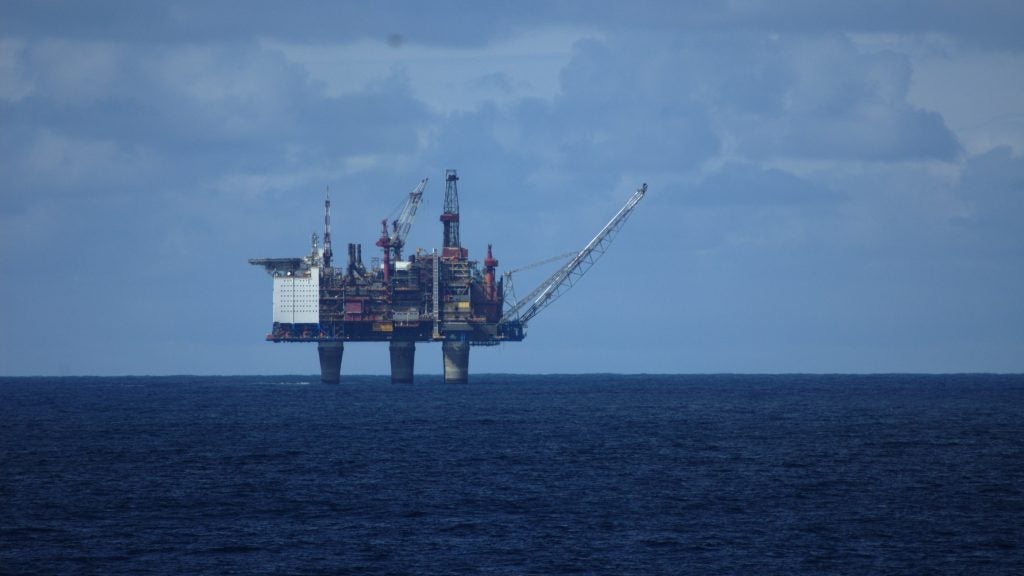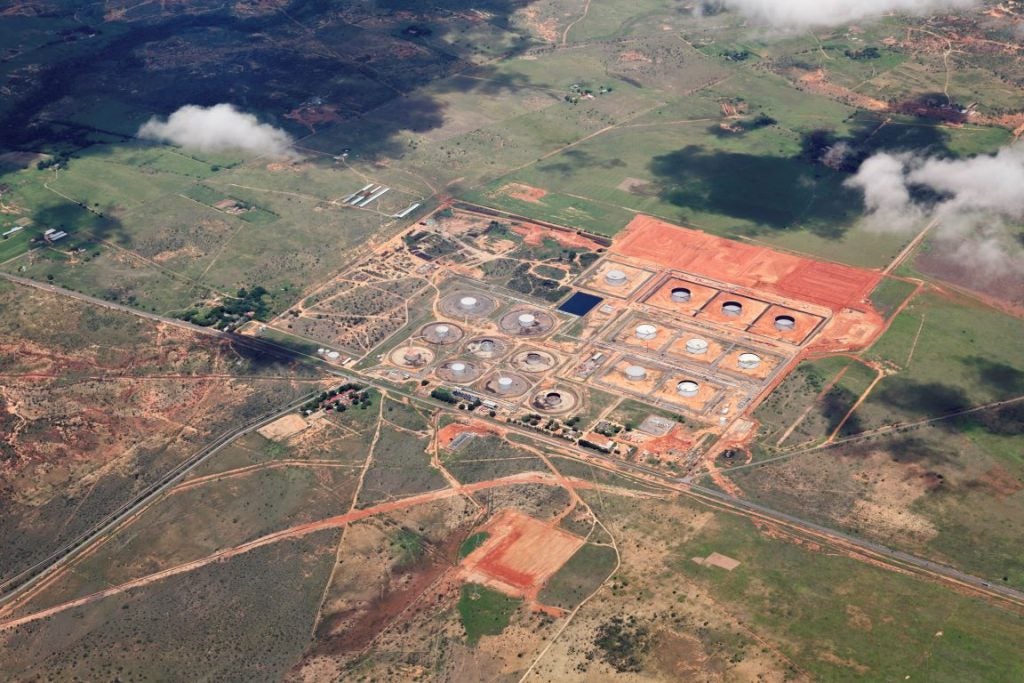

Canada’s offshore oil and gas industry has experienced a surge of new interest in recent years, with many projects, particularly in the Arctic and Atlantic oceans, expected to come into production imminently.
The Canadian government is keen to encourage further exploration and oil production in the ecologically sensitive Arctic Circle offshore Canada. However, many environmentalists, most notably Greenpeace, have been very vocal about the devastation an oil spill in the region could cause.
Keen to allay such fears, over three years after the BP Deepwater Horizon disaster which saw an estimated 4.9m barrels of crude oil flow into the Gulf of Mexico over 87 days, Canadian Natural Resources Minister Joe Oliver announced last year the government was taking a ‘polluter pays’ approach to offshore oil and gas drilling in the Arctic and Atlantic regions.
Oliver announced that as part of the Energy Safety and Security Act, companies working in the Atlantic offshore Canada will now face greater liability. Operators will have to provide the government with unfettered access to $1bn via a promissory note or letter of credit so the money can be accessed immediately in the event of a spill. If the operator is found to be at fault the liability will be unlimited.
See Also:
"This legislation will protect Canadians and our environment while supporting jobs and economic growth," Oliver said in a statement in January 2014 when the legislation became official.
How well do you really know your competitors?
Access the most comprehensive Company Profiles on the market, powered by GlobalData. Save hours of research. Gain competitive edge.

Thank you!
Your download email will arrive shortly
Not ready to buy yet? Download a free sample
We are confident about the unique quality of our Company Profiles. However, we want you to make the most beneficial decision for your business, so we offer a free sample that you can download by submitting the below form
By GlobalDataThe new legislation has been called a step in the right direction but, considering Deepwater Horizon has cost BP more than £40bn so far, there are concerns from environmentalists it is not comprehensive enough and it could lead to the taxpayer footing most of the bill if fault can not be determined. Meanwhile, while not necessarily opposed to the legislation, the industry has warned it will out rule junior companies from working in the area.
Pushing junior companies out of the picture
Tragedies such as Piper Alpha and Deepwater Horizon have shown the offshore oil and gas industry the devastation fire can wreak.
Of the 61 large oil and gas fields discovered to date within the Arctic Circle, six lie in the Canadian Arctic, according to a 2013 report by Ernst & Young. Major companies such as BP, Chevron, Royal Dutch Shell and Imperial Oil all have interests offshore Canada in the Atlantic or Arctic.
The Canadian Association of Petroleum Producers’ (CAPP) manager for Atlantic Canada Paul Barnes says the £1bn financial asset assurance "really doesn’t concern us" because most companies that are offshore Canada are multinational and have at least $1bn of financial assets. He adds that while it does not affect the majors it does have an effect on junior companies as $1bn may be difficult to obtain and tie up. The government would not accept insurance for this money because it needs to be immediately accessible.
The amended legislation is clearly designed to provide some reassurance to Canadian taxpayers that oil companies will be held financially responsible for a spill, but at the same time it is consciously avoiding scaring off future investment. But if it scares off investment from the juniors, this isn’t necessarily a bad thing.
Many would argue that if a junior company cannot stump up the financial capital for spill recovery it shouldn’t be working in a highly environmentally sensitive area such as the Arctic.
"That’s right," Barnes agrees. "But there is the other argument that the junior companies do pick up licenses and they try and work them without undertaking activity on them."
He adds that the language of the legislation does allow some "flexibility" so that if a company is just doing seismic testing it is unlikely financial instruments of £1bn would be required.
Quantifying ecosystem destruction
The Energy Safety and Security Act may rule out smaller companies in favour of multi-nationals with mega-budgets that they can access if disaster should strike, but even then, is it possible to adequately measure the cost of a major spill?
Oceans North Canada researcher Chris Debicki, speaking to the Globe and Mail, said it is "impossible to put an economic figure on ecosystem destruction".
It is also thought the harsh conditions off the Canadian coast would make it particularly difficult to contain and clean up an oil spill on the scale of Deepwater Horizon, which occurred in an offshore region where the warm conditions of the Gulf of Mexico are conducive to dispersing and breaking down oil.
National Audubon Society president David Yarnold, writing on his blog for the Huffington Post, said: "Cleaning up a major spill in the Arctic would make the BP disaster look like child’s play."
This suggests that the total clean-up figure for a spill in the region could way out-strip the $42bn BP put aside for the Deepwater Horizon spill. The liability for a spill that is established to be the operator’s fault might be "unlimited" but how can the government adequately measure whether a company has the available funds?
This is a sentiment echoed by Canadian Green Party leader Elizabeth May, who told the Calgary Herald: "This [legislation] is entirely post facto — what you do after spills and accidents."
Are we running out of oil already or is the possibility of reaching the peak still several decades away?
"So the claim this is going to make anything safer is, on the face of it, absurd," May added.
Barnes, though admitting the term ‘unlimited’ is indeed "a little vague" assures: "A country like Canada would access the balance sheets and financial statements of an oil company where it can determine that the company has billions of dollars worth of assets around the world; then they should have access to enough finance and other resources if there is a spill."
He adds that as a country Canada has "equipment and well-trained government personnel to assist in a spill", while industry has "a lot of oil response equipment in place" as well as "well-trained staff".
But what if a spill is found to not be a company’s fault? A cap of $1bn would see taxpayers foot an enormous bill, of which companies would only pay a small fraction.
"In the event of an oil spill off the coast of Canada, it’s going to be very costly to the taxpayers of Canada," Pierre Sadik, manager of legislative affairs for environmental advocacy group EcoJustice told the Globe and Mail. He added that in the case of unlimited liability it can be difficult for governments to prove fault or negligence and collect compensation.
An imperfect system
Shauna Morgan, an analyst with the Pembina Institute based in Canada, told the Financial Post: "Canada is at least moving in the right direction but we’re not at a point yet where we can say that we’re following best practices or a world leader in offshore liability issues."
Many would agree, but Canada’s new improved legislation serves to highlight an ambiguous issue in offshore oil and gas regulation, not just relevant in Canada, but around the world.
After Deepwater Horizon, US Congress considered raising the maximum legal liability for offshore oil and gas companies from $75m to $10bn but has yet to do so, meaning its liability is vastly smaller than Canada’s. Offshore facilities are also required to maintain evidence of financial responsibility of $150 million.
In 2010 in response to Deepwater Horizon the UK Offshore Pollution Liability Association (OPOL), raised ‘no fault’ liability for pollution damages to $250m.
Australia’s current law does not place any specific liability on operators to pay for clean-up or environmental damages caused by spills, but companies are legally required to have insurance to cover the costs of complying with directions relating to the clean-up or other remediation activities.
Given what we know about Deepwater Horizon, which has given the industry and governments a clear warning of what can happen in a worst-case oil spill scenario, these figures all seem woefully inadequate.


.gif)




